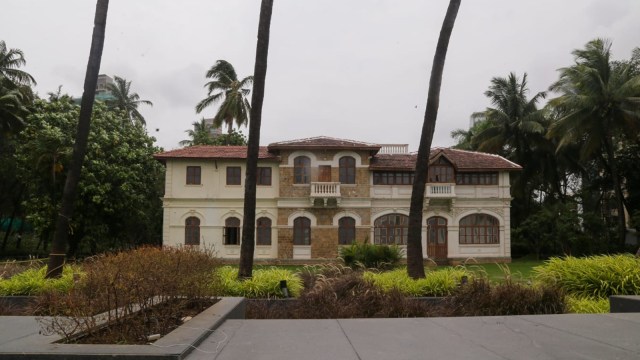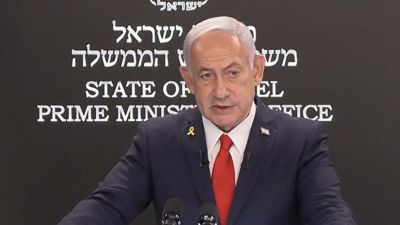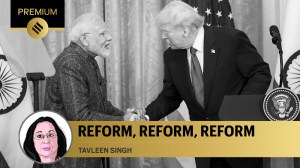HC dismisses pleas against govt decision to give Mayor’s bungalow for Thackeray Memorial
It said that the petitioners who filed the PILs were not opposed to the memorial itself and their challenge to the site chosen by the government was outside the scope of judicial review.
 The petitioners also claimed that since the bungalow, built in 1928, is a heritage structure, it cannot be converted into a memorial. (Express Photo by Akash Patil)
The petitioners also claimed that since the bungalow, built in 1928, is a heritage structure, it cannot be converted into a memorial. (Express Photo by Akash Patil)The Bombay High Court Tuesday dismissed petitions challenging permission given by the Maharashtra Government to convert the Mayor’s Bungalow in the city’s Shivaji Park area into a memorial for late Shiv Sena chief Bal Thackeray.
The court said that it did not find any valid ground for challenging the decision.
The division bench of Chief Justice Alok Aradhe and Sandeep V Marne noted that the work of setting up of the memorial is “virtually complete” and that it is a policy decision by the government in which the court is not inclined to interfere.
It said that the petitioners who filed the PILs were not opposed to the memorial itself and their challenge to the site chosen by the government was outside the scope of judicial review.
“When it comes to setting up of memorials for leaders and persons revered for their contribution, it is also well settled that such act constitutes a public purpose and decision of the executive to set up a memorial to commemorate such persons, is a matter of policy of the State,” the court said.
A Government Resolution was issued in 2016 granting approval for setting up of the memorial at Mayor’s Bungalow and for constitution of a public trust, the Balasaheb Thackeray Rashtriya Smarak Samiti, for the purpose and its construction is nearly complete.
“This court also takes notice of the fact that the work of setting up of the Memorial is virtually complete by now. Mr. Khambata (senior advocate appearing for the trust) a has taken us through the photographs of the site, which shows that the grandiose structure of Mayor’s Bungalow has not only been kept intact, but has been restored. Its heritage significance is not disturbed. Since the work of setting up of the Memorial is virtually complete by now, this could be yet another reason for this Court not to interfere in the impugned decisions and actions,” the court said.
Four Public Interest Litigations (PIL) by activists and NGO Jan Mukti Morcha, challenged the decision, claiming that the proposed construction violated the Environmental Protection Act and the Coastal Zone Regulation notification.
The petitioners also claimed that since the bungalow, built in 1928, is a heritage structure, it cannot be converted into a memorial.
Lawyer Uday Warunjikar appearing for the NGO submitted before the court that decision by the state government was arbitrary and that the petitioners are not opposing the setting up of a memorial for Thackeray but the site chosen and the manner in which the trust is set up, like a “private trust”.
The Brihanmumbai Municipal Corporation (BMC) and the state government opposed the petitions stating that the plot on which the memorial is to be constructed does not fall within green zone anymore, since it was earmarked for residential zone through a government notification, as per provisions of the Maharashtra Regional and Town Planning (MRTP) Act.
Senior advocate Darius Khambata appearing for the Trust said that all procedure was followed in the allotment of the bungalow.
Senior advocate Anil Sakhare appearing for the BMC said the Mumbai Heritage Conservation Committee had given a no-objection for the proposed change of the bungalow to a memorial museum.
The civic body also submitted that all necessary procedures were followed for its construction.
The court also noted that while the petitioners challenged the composition of the trust, calling it a “family affair”, only three of its 11 members are members of Shiv Sena, two of whom, Thackeray’s son, Uddhav, and grandson, Aditya, are actual family members.
“After all, late Balasaheb Thackeray founded Shiv Sena political party and it can hardly be contended that the decision of the State Government in taking on board three members of that party, two out of whom are infact family members of late Balasaheb Thackeray, would amount to arbitrariness,” the court said.
It also said that any land chosen in Mumbai would have been valuable and hence the allotment of the land on lease with a nominal rent of Re 1, is also a policy decision it cannot interfere with.












